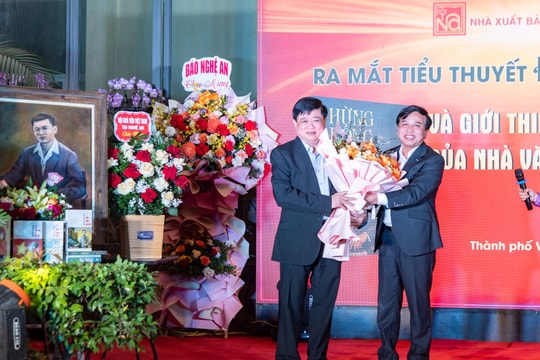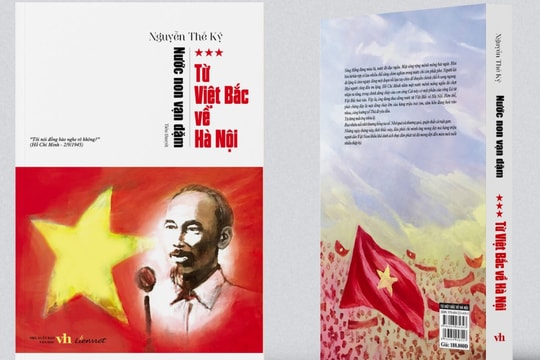His whole life belonged to the country.
With volume 5, the final volume of the epic novel series The Thousand Miles of Mountains and Rivers written about the life and revolutionary struggle of the great President Ho Chi Minh, writer Nguyen The Ky decided to choose a highly generalized title: Vietnam - Ho Chi Minh.
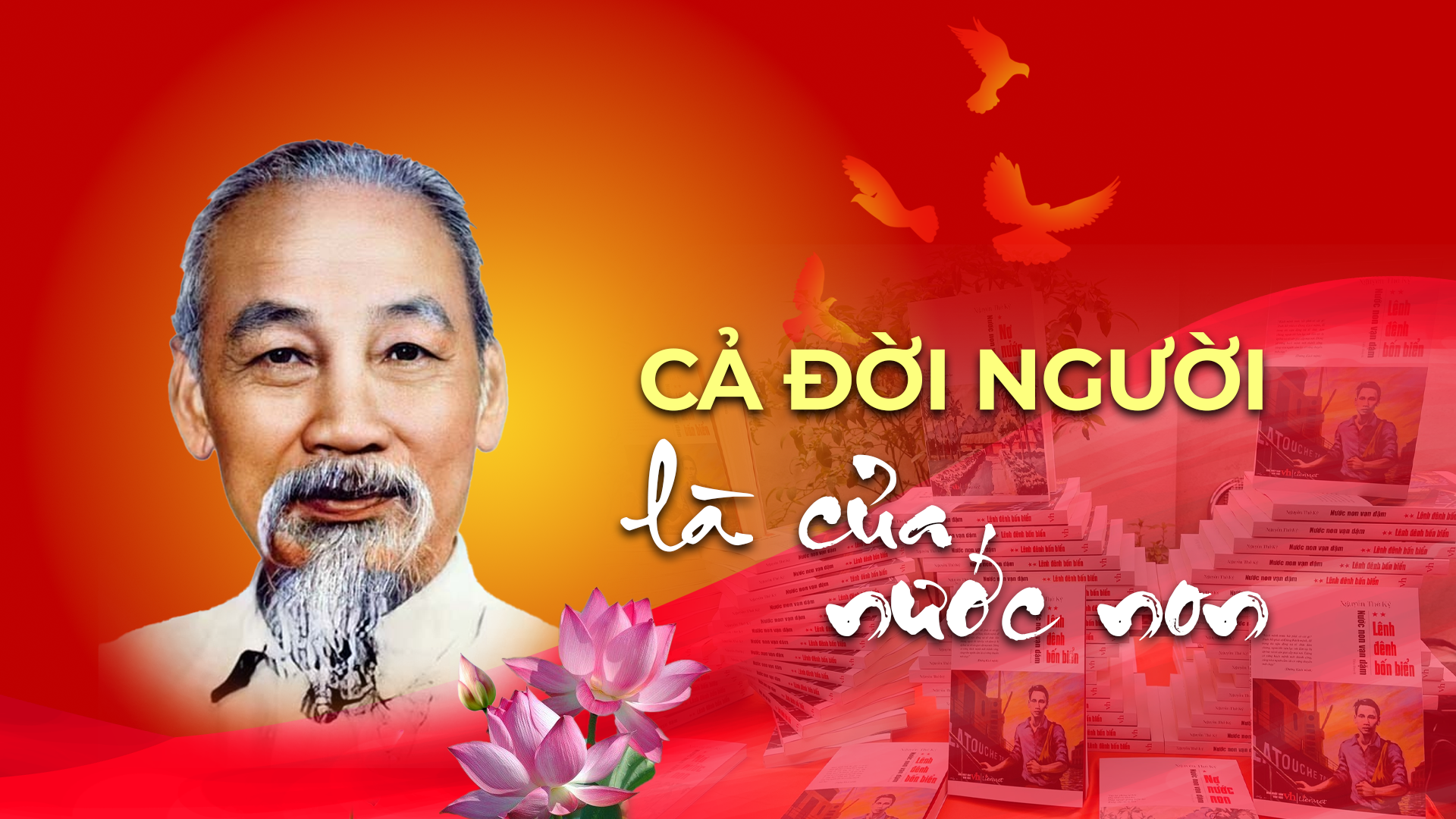
Nguyen Hoai Nam• May 14, 2025
With volume 5, the volume concludes the epic novel series.Thousands of miles of mountains and riversWriting about the life and revolutionary career of the great President Ho Chi Minh, writer Nguyen The Ky decided to use a highly generalizing title:Vietnam - Ho Chi Minh.
It can be said that if a literary work begins with the title - as Alexander Pushkin, "the sun of Russian poetry" once commented - then the titleVietnam - Ho Chi Minhbelongs to the type of title that condenses the core idea of the work right from the beginning.
"Vietnam"and"Ho Chi Minh", the two components in the novel's title are connected by a hyphen, suggesting to the reader a balance and the possibility of transformation: Talking about Vietnam means talking about President Ho Chi Minh, because President Ho Chi Minh is considered the most complete, perfect, and beautiful representative of Vietnam. This is perhaps similar to an idea that Nguyen Dinh Thi wrote in 1950, in the poemViet Bac homeland: “Here lived a man with silver hair/ A man with no children but a million children/ Our people called him Uncle/ His whole life belonged to the country".
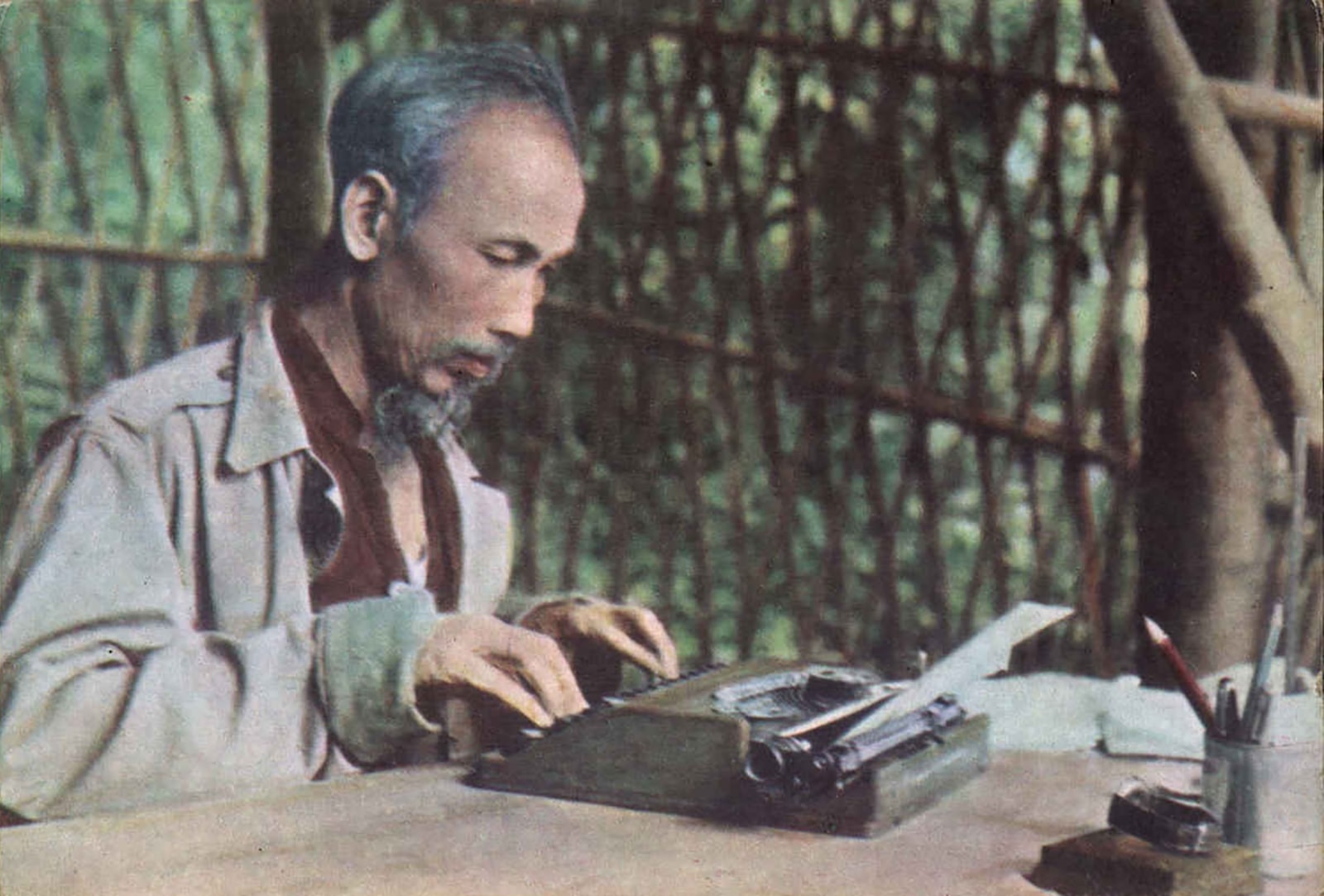
The time frame of the stories in this volume 5 begins from: “16 hours On October 9, 1954, the last French soldiers trudged across Long Bien bridge, withdrawing from Hanoi.", and ended at the moment when Uncle Ho forever left his compatriots and comrades, returning to the eternal world of the wise: "The clock on the wall stopped at 9:47. The calendar stopped at the page with the date September 2, 1969.".
That time frame was the last fifteen years of Uncle Ho's life. Fifteen years, as the President of the Vietnamese Workers' Party, President of the Democratic Republic of Vietnam - the Democratic Republic of Vietnam whose legitimacy the world was forced to recognize after the 1954 Geneva Agreement on ending the Indochina War was signed, not the Democratic Republic of Vietnam whose Government had to temporarily abandon the capital to retreat to Viet Bac to wage a nine-year resistance war against the French - Uncle Ho led the entire Party, the entire people, and the entire army into a new long march: restoring the post-war devastated economy, boosting production and striving for socialism in the North; building and perfecting the fighting force, outlining strategies and resolutely fighting against the Republic of Vietnam government in the South, heroically countering the US imperialists' invasions of Vietnam, moving towards the complete liberation of the South, unifying Vietnam into a single strip of land.
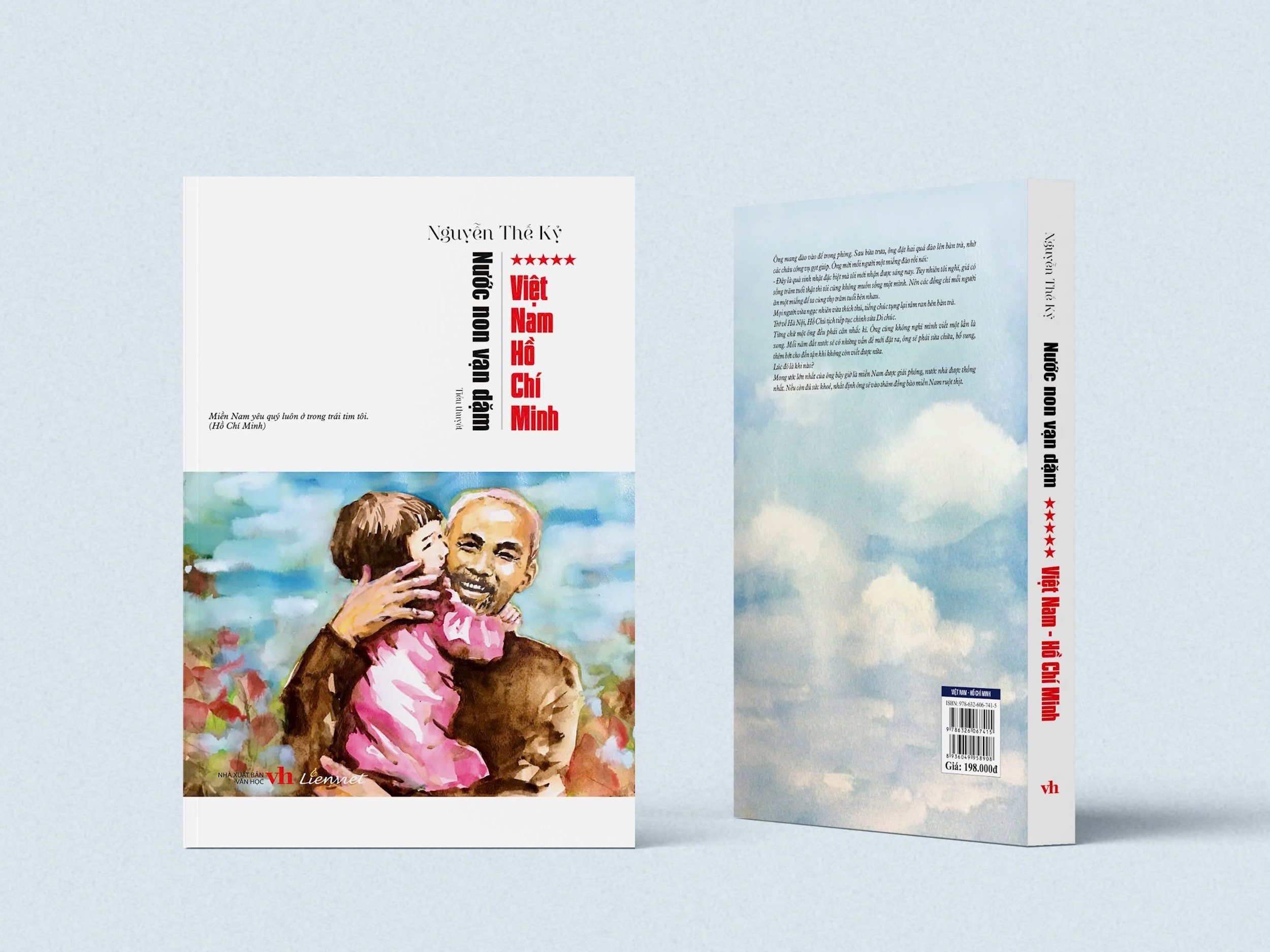
In general, the events that writer Nguyen The Ky mentioned in the story in volume 5 of the seriesThousands of miles of mountains and riversThese are all events that have been recorded in official historical documents, "solidified" and widely disseminated for a long time. All of them show that, during the 15 years since leaving the Viet Bac resistance base to take over Hanoi until his death, President Ho Chi Minh was always present as a supreme leader, a strategist and the soul in the movements of the revolution and of national history.
Nguyen The Ky - as a literary creator, a historical-cultural researcher, a professional political activist - did not build his novel by saying things that were outside or different, but his way was: to stick very firmly to the "inconceivable" facts that everyone knows, and to find in those facts gaps that allow the writer to breathe his imaginative energy into them, creating details that may not exist in reality but are very reasonable, and sometimes even "more real than real".
For example, to understand and feel the pain when the South was divided, the attachment and love of President Ho Chi Minh for his fellow countrymen in the South, we have the story of Uncle Ho hugging lawyer Nguyen Van Hieu, Head of the delegation of the National Liberation Front of South Vietnam to visit the North in October 1962, and said: "The image of the beloved South is always in my heart.”. But Nguyen The Ky made it even more poignant when he let Uncle Ho - as a character in the novel - add: “In our South, each Each person and each family has their own suffering. The suffering of each person and each family together becomes Uncle Ho's suffering. A day when the Fatherland is not unified and the people still suffer and sacrifice is a day when Uncle Ho cannot eat well or sleep well.”. And immediately after that, is a descriptive/commentary sentence from the anonymous narrator: “All present were silent, tears of emotion, sobbing, and anguish flowed out, wetting the Southern Vietnamese scarves.".
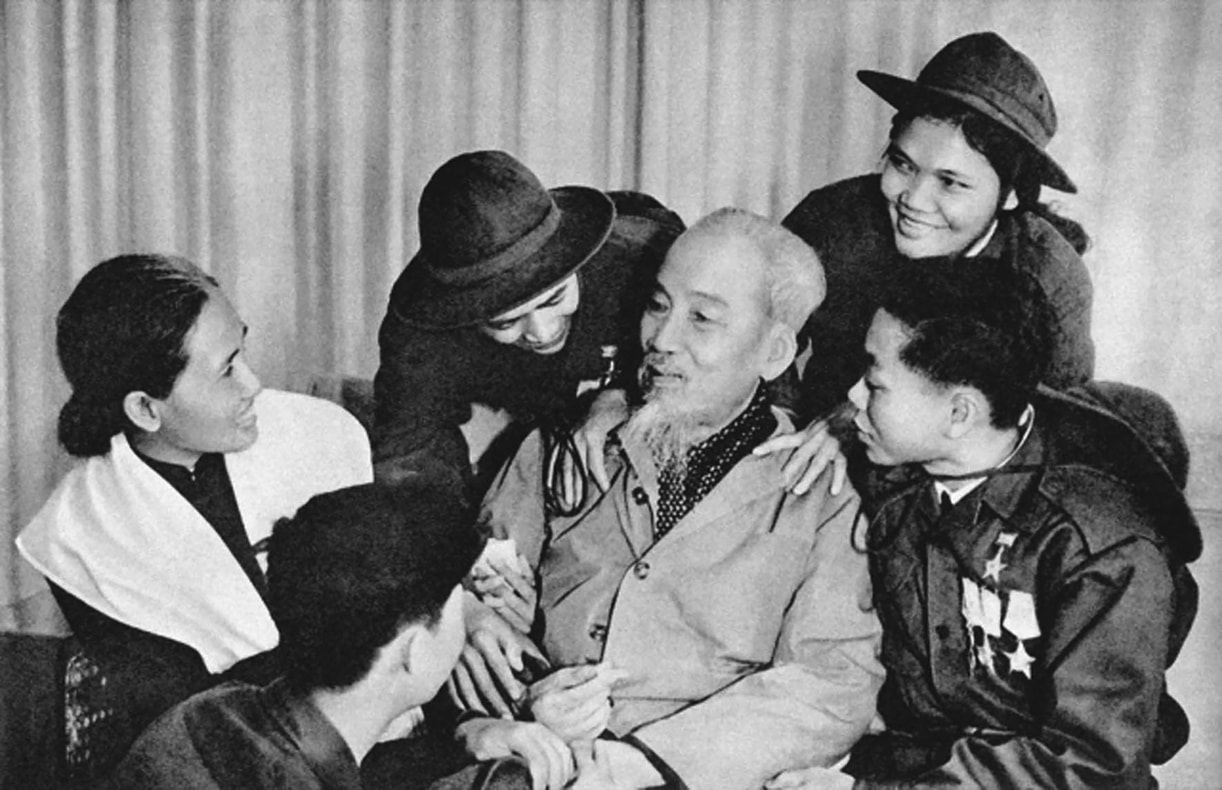
As the head of an independent country with full sovereignty in the international arena, Ho Chi Minh naturally had to conduct diplomatic activities with other countries, both with friendly countries in the same Socialist bloc and countries with opposing political lines. In this aspect, as we all know, Ho Chi Minh's core principle was to take the Marxist-Leninist viewpoint as a compass, maintain the Communist stance, and put the national interest above all. With that principle, he demonstrated in historical reality as a very successful diplomat and always made his partners respect him.
In the novelVietnam - Ho Chi Minh, Nguyen The Ky further exploited this point. For the writer, Ho Chi Minh's diplomatic style is a modest but very proactive, confident, elegant and skillful style. Not the "diplomatic" skillfulness - sweet and smooth, only to gain the other side's sympathy - but the skillfulness of understanding and sincerity.
Ho Chi Minh's visit to India in 1960 is an example. When attending a rally, he refused to sit on the massive throne-like chair that Indian Prime Minister J. Nehru had kindly reserved for him, saying: "It's an honor to be here. Please make yourself at home.”. When attending a party, he “followed the Indian way of eating with his hands” with a humorous remark to the guests: “Chicken must be eaten with your hands to be delicious, but eating it with a spoon and fork is like talking to your lover through an interpreter.".
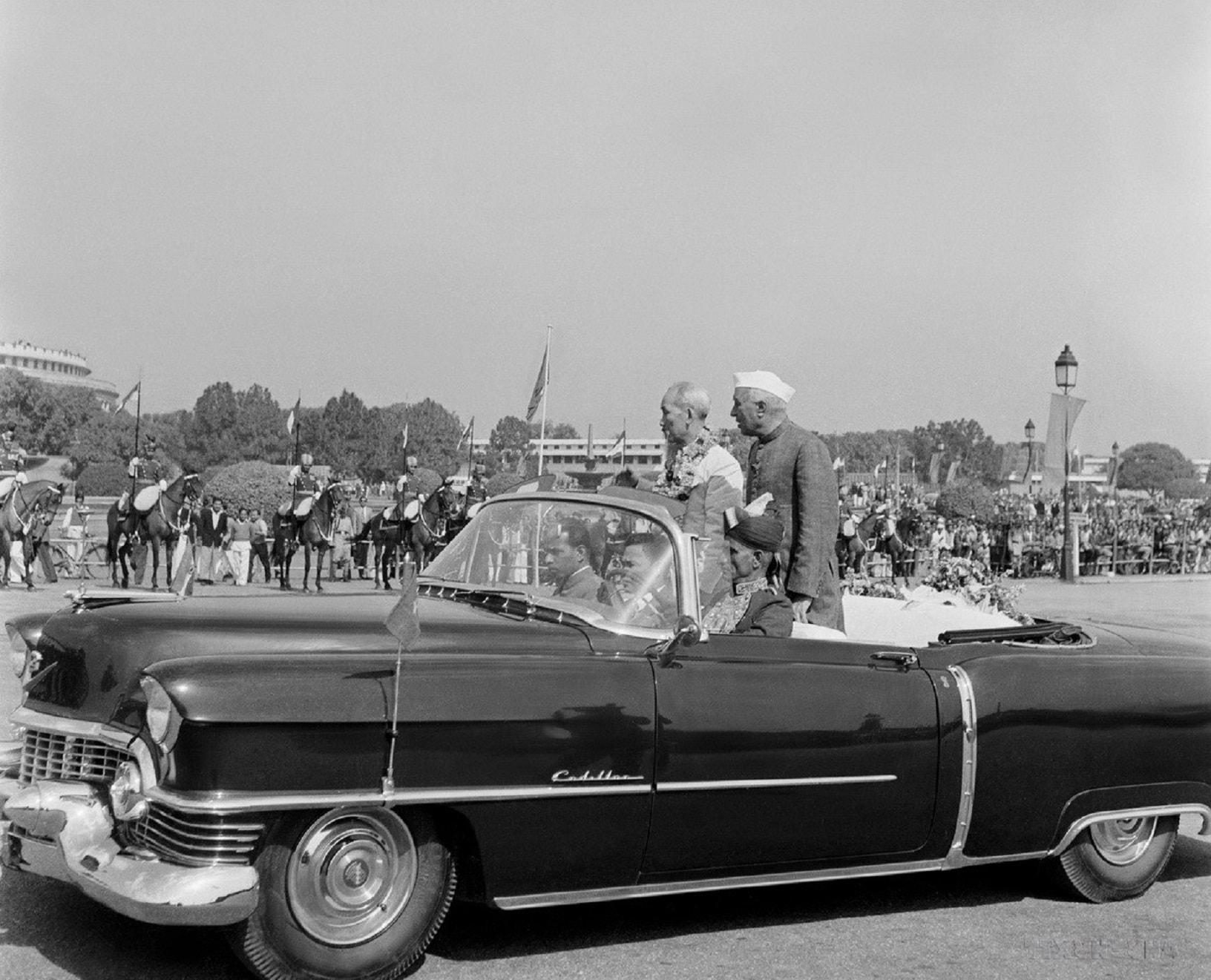
But on the other hand, with opposing, hostile forces such as the US imperialists, represented by President Lyndon Johnson, Ho Chi Minh showed himself to be extremely determined, with tight arguments, strong words, and uncompromising. Below is the full text of the letter Uncle Ho sent to Lyndon Johnson, meaning direct dialogue, not us talking to ourselves about the enemy:
“To Mr. Johnson, President of the United States of America,
Dear Sir,
On February 10, 1967, I received your letter. This is my reply.
Vietnam is thousands of miles away from America. The Vietnamese people have never touched America. But, contrary to the commitment of the US Government representative at the Geneva Conference in 1954, the US Government has continuously intervened in Vietnam, causing and expanding the war of aggression against South Vietnam with the aim of permanently dividing Vietnam, turning South Vietnam into a new type of colony and a US military base. For more than two years now, the US Government has also used the air force and navy to attack the Democratic Republic of Vietnam, an independent and sovereign country.
The US government has committed war crimes, sabotaged peace and committed crimes against humanity. In South Vietnam, half a million US and allied troops used the most cruel weapons and the most barbaric war tactics, including napalm bombs, chemical poisons and poison gas, to kill our people en masse, destroy crops and demolish villages. In North Vietnam, thousands of US planes dropped hundreds of thousands of tons of bombs and ammunition, destroying cities, villages, factories, bridges, dams, churches, pagodas, hospitals and schools. In your letter, you expressed your sorrow at the pain and destruction in Vietnam. May I ask you,,Who committed these heinous crimes? It was the US military and its vassal troops. The US government must take full responsibility for the extremely serious situation in Vietnam today.
The American war of aggression against the Vietnamese people was a challenge to the countries in the alliance.XSocialism. That war was a threat to the independence movements of the peoples; at the same time it seriously threatened peace in Asia and the world.
We, the Vietnamese people, are very passionate about independence, freedom and peace. But in the face of American aggression, the Vietnamese people united as one, not afraid of sacrifice and hardship, rose up to fight and were determined to fight until we achieved true independence, freedom and genuine peace. Our just struggle received the sympathy and strong support of the people of the world, including broad segments of the American people.
The US government has caused a war of aggression against Vietnam, so the path to peace in Vietnam is for the US to end its aggression. The US government must permanently and unconditionally end the bombing and all other acts of war against the Democratic Republic of Vietnam; must withdraw all US and vassal troops from South Vietnam; must recognize the National Liberation Front of South Vietnam; must let the Vietnamese people resolve their own internal affairs. That is the basic content of the four-point stance of the Government of the Democratic Republic of Vietnam, expressing the main principles and provisions of the 1954 Geneva Agreement on Vietnam. That is the basis for a correct political solution to the Vietnam issue.
In the letter, he suggested that the Democratic Republic of Vietnam and the United States talk directly. If the US Government really wants to talk, the US must first unconditionally end the bombing and all other acts of war against the Democratic Republic of Vietnam. Only after the US unconditionally ends the bombing and all other acts of war against the Democratic Republic of Vietnam can the Democratic Republic of Vietnam and the United States talk and discuss issues related to both sides.
The Vietnamese people will never submit to force and will never talk under the threat of bombs and bullets.
Our cause is just. We hope the US government will act in accordance with reason.
Hello sir.
Ho Chi Minh".
Of course, this is not Nguyen The Ky's writing. But the way the writer creates situations to put President Ho Chi Minh's documents - in many different forms: articles, speeches, appeals, reply letters, Testament - into his novel is also worth noting. Because they are organically linked and very focused to talk about a great Vietnamese person: President Ho Chi Minh.
Furthermore, unlike the previous four volumes of the novel seriesThousands of miles of mountains and rivers, purely in chronicle narrative style, in this volume 5,Vietnam - Ho Chi Minh, we can see that in some places the author uses the "flashback" technique like in cinema, and it is quite effective. For example, the part where Uncle Ho visits his hometown in 1957. Entering the old house, looking at old objects, burning incense before the altar of his father, mother, brothers, sisters, he suddenly returns to live with fragments of memories, both dear and deeply sad. This part is closed by the writer with two comments, carrying the core idea of the entire novel: "Finally, he was the only one left in his family of six. His family now and forever was the Fatherland, the People of the North and the South.".
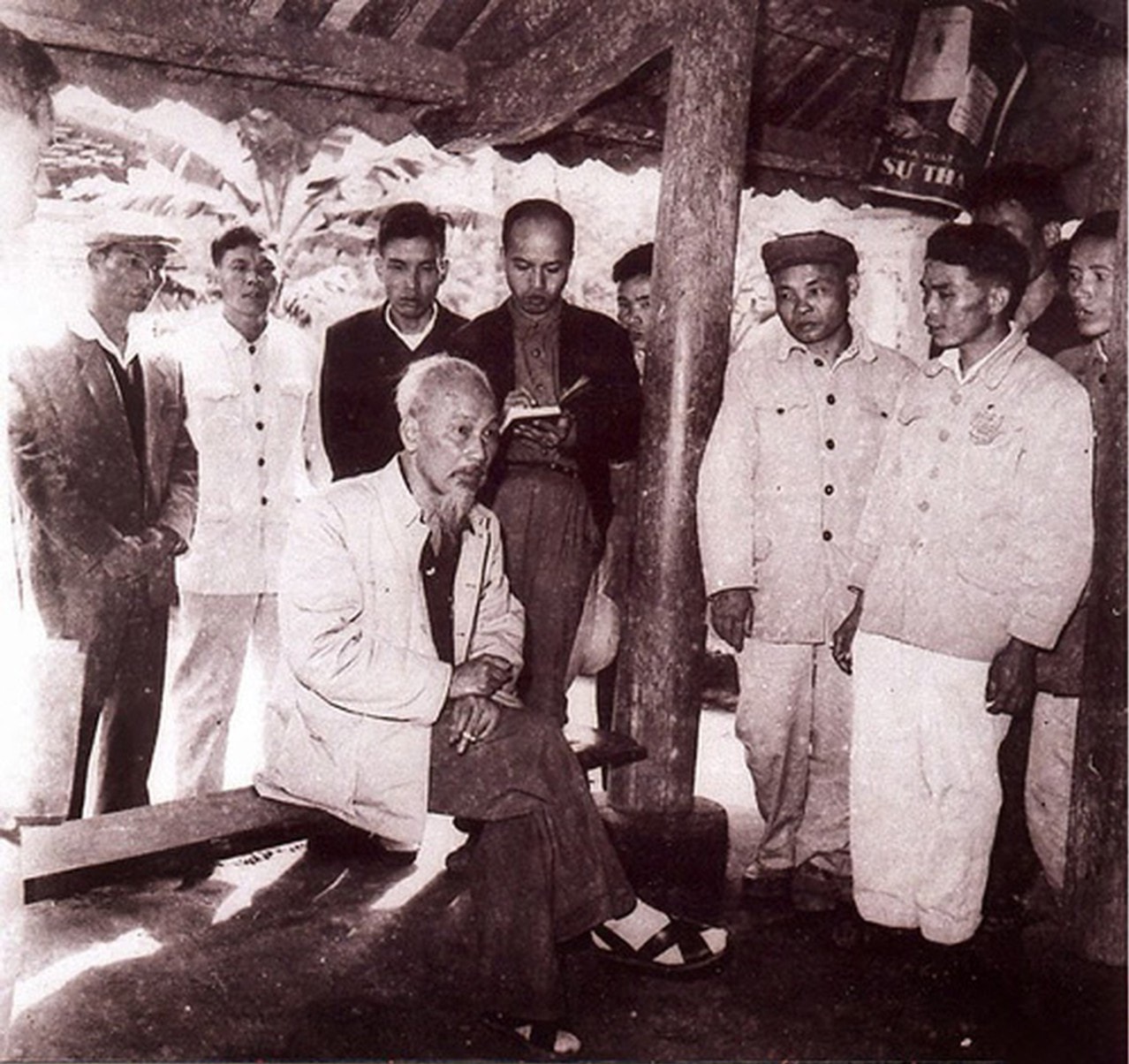
And the end of the work, when the writer Nguyen The Ky in volume 1 "followed Uncle Ho" from the time the boy Cung was born, in volume 5 he "witnessed" his final moments. A gentle and peaceful departure, but leaving behind an extremely great legacy and an infinite sorrow for the entire nation:
“In his fitful dreams, he saw his father, mother, sister Thanh, brother Khiem, brother Nhuan, and especially his grandmother. His grandmother sat on the porch while the lilies were blooming and giving off a fragrant scent.
He wondered: Is it lily season now?
He remembered the days of drifting on the four seas, putting up chairs to scrub pans or dragging bags of coal across the deck. He remembered the days of shoveling snow and cleaning chimneys. He remembered the warm meals with his family in Philippe's restaurant. It had been so long since he had heard from those dear friends...
Occasionally he heard a soft murmur, he didn't know if it came from the people around him or from his memories. He also heard children laughing and singing. Little babies with rosy cheeks...
He didn't feel tired or in pain, just felt his body getting heavier and heavier, and it was difficult to lift his arms. Ah, there it was, the beeping sound of medical machines.
A sharp pain shot through his chest. Just a slight one, but enough to send him drifting off to sleep.".

